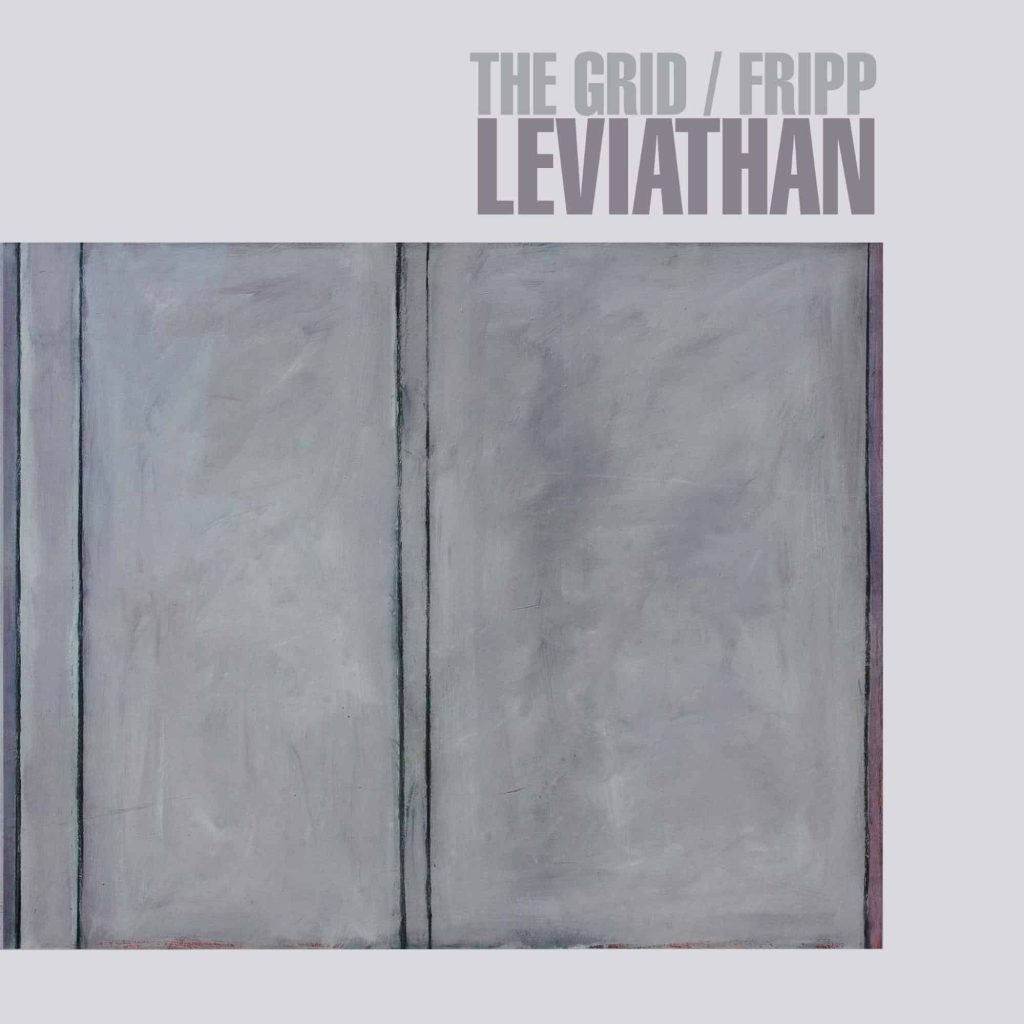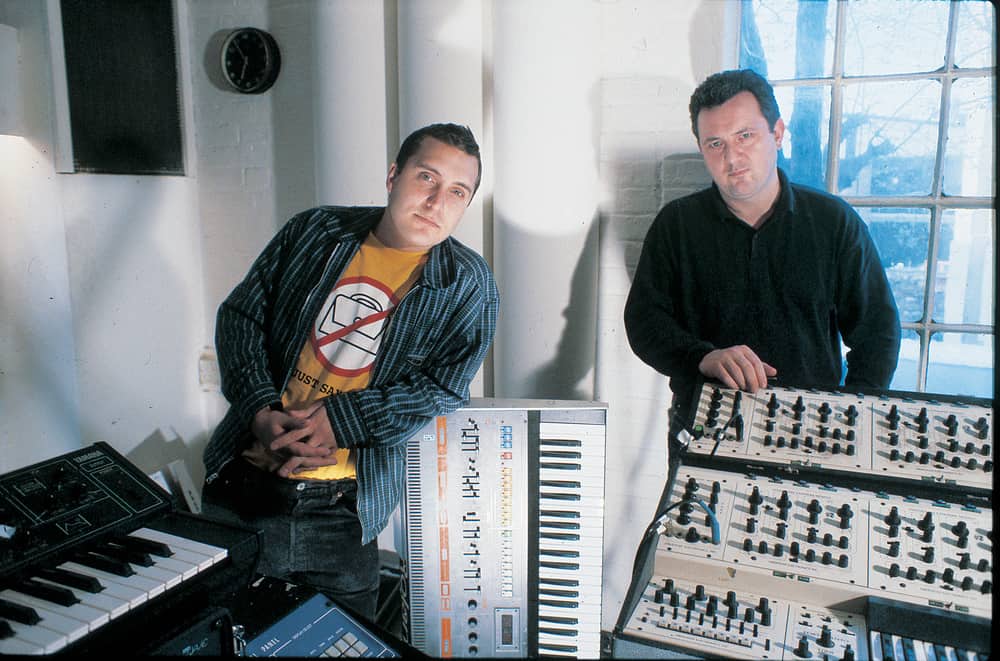In 1992, King Crimson frontman Robert Fripp collaborated with British electronic dance duo The Grid on their classic second album, 456 (1992), and its follow-up, their best-known album, Evolver (1994). The single “Swamp Thing” from Evolver would ultimately become The Grid’s most-popular and enduring musical composition. Years later, he would collaborate with them once again on Doppelganger (2008).
Robert Fripp and The Grid definitely seemed like an odd pairing at the time, but working with a producer of Fripp’s stature allowed The Grid to expand the scope of their sound and gave them some more credibility amongst listeners.
Though the recording sessions for those three albums proved successful, several other pieces of music created at the same time were left unreleased. One track (“Late Night Tales”) would ultimately surface on a compilation, while the rest formed the basis for Leviathan (2021). The result of this latest collaboration between Fripp and The Grid is a near-perfect album.

Leviathan is an album simply made for immersive audio. It is, in a word, perfection. Stylistically, it can be described as a series of slow, instrumental ambient composition that straddles the line between electronica and more-traditional progressive rock.
The album opens with “Empire,” which expertly utilizes drones and Fripp’s trademark “Frippertronics” soundscapes much more than The Grid’s trademark electronic dance sound. This is followed by “Milkwood,” which leans more in the progressive rock direction due to Fripp’s trademark guitar contributions.
The second half of the album veers more towards electronica. Following the epic title track, the listener is treated to the unique acid-house style of “After The Rain.” The music moves at a quicker pace than before, but Fripp is careful not to let it slide into a familiar retro style. Instead, the combination of styles forms a distinct new sound.
“Fire Tower” and “Zhora” continue in the same vein, leading up to the fantastic closing track “Sympatico.” Fripp’s guitar once again stands out, while Norris and Ball build up the tempo. It’s the perfect ending to a remarkably unique and coherent album.

Though I auditioned both the standard stereo CD and 5.1 DVD-Audio included in the set, the simple fact is that Leviathan works best in 5.1 surround. The difference between the two discs is staggered.
A great deal of credit must be given to The Vicar (a pseudonym for David Singleton, King Crimson’s manager) for the incredible sonic depth and separation in the 5.1 mix. The surround sound emphasizes the “space” in the album, allowing the listener to truly sit inside
The music. All five speakers are engaged quite aggressively to create a dream-like sonic landscape. The difference between the stereo and 5.1 mixes is startling, creating the impression that the album was somehow composed with immersive audio in mind.
Ultimately, no matter how well-produced and well-mixed the album is, it all comes down to the music. Fortunately, the songs are strong and The Grid’s production is flawless. For me, Leviathan sits comfortably with the best ambient albums by Brian Eno, David Sylvian, and Harold Budd: it’s a masterpiece.

